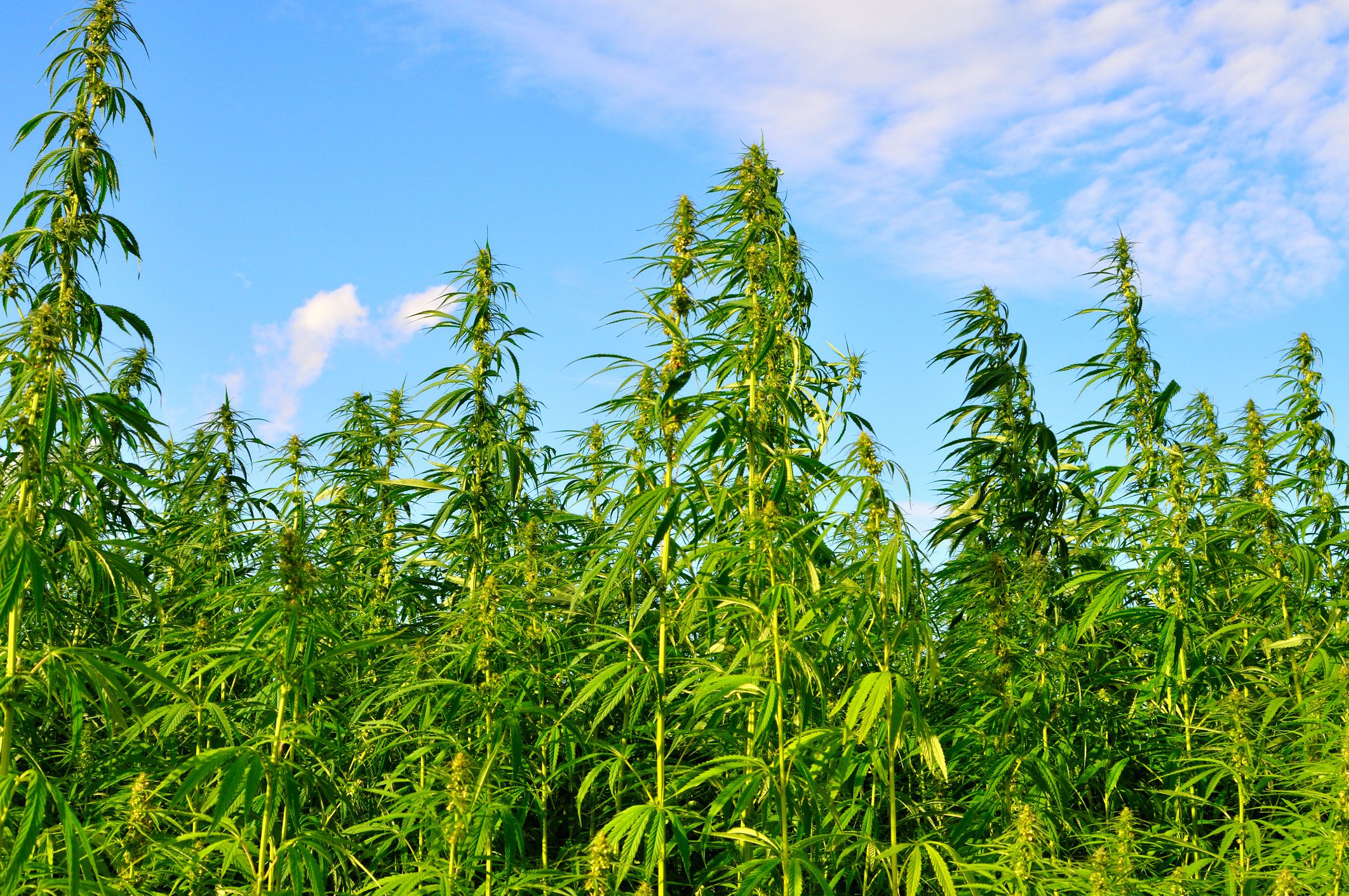
Hemp's High-Stakes Showdown: Study or Shutdown?
In the emerald fields of American agriculture, a quiet revolution has sprouted into a thorny political thicket. Hemp, once a humble crop demonized by decades of drug war dogma, now stands at the epicenter of a fierce federal feud. On one side, a libertarian-leaning GOP senator champions curiosity over crackdown, urging a deep dive into regulation rather than a hasty harvest ban. On the other, a chorus of 39 bipartisan state attorneys general demands a swift THC prohibition, painting intoxicating hemp derivatives as a gateway to chaos in candy aisles and corner stores. As Congress races toward fiscal year 2026 appropriations, this clash isn't just about buds and bylaws—it's a billion-dollar battle for the soul of an industry reborn. With poison control hotlines buzzing and farm economies booming, the stakes couldn't be higher. Dive in as we unpack this green gamble, where science, safety, and economics collide like cannabinoids in a chem lab.
The Loophole That Lit the Fuse
Picture this: It's 2018, and the Farm Bill unfurls like a welcome mat for hemp, legalizing the plant nationwide for the first time since 1937—if its delta-9 THC levels clock in below 0.3%. Congress, eyeing economic gold in fibers, fuels, and yes, feel-good extracts, greenlights a market poised to explode. Fast-forward to 2025, and that threshold has morphed into a mischievous loophole. Hemp-derived cannabinoids—think delta-8 THC, delta-10, and the Frankenstein-like THC-O—slip through, chemically tweaked to dodge the delta-9 cap while delivering a punchier high than your average joint.
These "hemp" hybrids aren't confined to head shops; they're hawking gummies shaped like cartoon characters at gas stations from Kentucky to California. No age gates, scant labeling, zero federal oversight. The result? A shadow cannabis sector, unregulated and ubiquitous. State poison control centers report a grim uptick: pediatric exposures to these synthetics have surged, with calls spiking in states like Texas and Florida. Critics decry them as "recreational synthetic THC products" masquerading as wellness wares, exploiting the Farm Bill's silence on intoxicating isomers. What started as a nod to non-psychoactive hemp has ballooned into a $5 billion-plus consumables market, per industry trackers, fueling both innovation and infamy. This isn't your grandpa's rope-maker; it's a psychedelic Pandora's box, and Washington's scrambling to reseal it.
Paul's Prescription: Science Over Scythe
Enter Sen. Rand Paul, the Kentucky Republican with a rebel streak wider than a hemp field's horizon. A vocal cannabis reformer since his days railing against the War on Drugs, Paul isn't here for blanket bans—he's betting on brains over brawn. In a bold maneuver amid the appropriations shuffle, he's circulating draft language to swap a proposed hemp THC prohibition for something smarter: a mandated U.S. Department of Agriculture (USDA) study on "best practices" for taming intoxicating cannabinoid products.
The proposal, tucked into the fiscal 2026 spending package, tasks the USDA with consulting states and delivering a congressional report within 18 months. It's a call for nuance: Examine how red states like Texas regulate delta-8 sales versus blue havens like California, where cannabis is king. Paul's not stopping there. Back in June, he unveiled the Hemp Economic Mobilization Plan (HEMP) Act, a standalone bill aiming to triple the legal THC cap to 0.9%—a lifeline for breeders battling post-harvest potency drops that render crops "hot" and unsellable.
Why the pushback? Paul sees prohibition as a sledgehammer on a sector that's only just sprouted roots. Earlier this year, he single-handedly derailed a Senate agriculture bill's outright ban on consumables with "quantifiable" THC, holding proceedings hostage until the clause crumbled. "Legal, nonintoxicating hemp is the future," he argues, echoing industry pleas that a ban would torch jobs and jolt rural economies. For Paul, this is libertarian logic incarnate: Let data dictate, not dogma. In a chamber often gridlocked by partisanship, his hemp heresy highlights a GOP rift—pitting free-market firebrands against law-and-order traditionalists.
AGs' Alarm: A Bipartisan Battle Cry
While Paul's plotting peer-reviewed paths, a formidable phalanx of enforcers is sounding the sirens. On October 24, 2025, 39 attorneys general from states and territories—spanning red bastions like Arkansas and blue bulwarks like Connecticut—penned a scorching letter to congressional brass. Co-led by AGs Tim Griffin (R-AR), William Tong (D-CT), Todd Rokita (R-IN), and Keith Ellison (D-MN), this bipartisan barrage blasts the Farm Bill loophole as a "wrongly exploited" portal for "bad actors" peddling potent potions.
Their indictment is vivid: Delta-8 and kin, often lab-synthesized from CBD isolates, pack psychoactive wallops exceeding marijuana's, yet evade controls by clinging to hemp's coattails. Sold in seductive packaging—gummy worms, fizzy sodas, vape pens mimicking kid-friendly flavors—these elixirs lure the young and unwary. "No consistent age restrictions, labeling standards, or safety requirements," the letter laments, citing a national scourge of unregulated highs. Poison centers corroborate the peril: In Minnesota alone, delta-8 incidents quadrupled from 2021 to 2024, with kids mistaking edibles for treats.
The AGs' ask? Clarify hemp's federal definition pronto—via appropriations riders or Farm Bill tweaks—to excise intoxicating THC from the legal lexicon. Ban sales outside licensed dispensaries, they urge, shielding shelves from synthetic sorcery. This isn't knee-jerk nannyism; it's a cross-aisle clarion call, building on last year's missive from 21 AGs. With signatories from 39 jurisdictions, it wields weight: Think Texas AG Ken Paxton rubbing elbows with New York's Letitia James, united against a hemp haze endangering public health.
Dollars and Delta: The Economic Stakes
Beneath the bluster beats a booming business. The U.S. industrial hemp market, valued at $1.63 billion in 2023, is barreling toward a compound annual growth rate that could swell it by $18.31 billion globally from 2025 to 2029. Domestically, consumables—those very THC-laced tinctures and treats—account for over 90% of revenue, topping $5.5 billion in Texas alone last year, with a ripple effect injecting $10.3 billion into the Lone Star economy via jobs, taxes, and supply chains.
Nationwide, hemp sustains 65,000 direct jobs, from Kentucky's cannabinoid crafters to Colorado's CBD compounders, per USDA tallies. A ban? It could vaporize $20-25 billion in untapped fiber and grain potential, stymied already by regulatory red tape. Proponents tout sustainability: Hemp sequesters carbon at triple the rate of forests, thrives on marginal lands, and yields everything from bioplastics to biofuels. Yet detractors counter that the intoxicating fringe—delta variants comprising 70% of sales—distorts this dynamo into a delta dystopia, siphoning billions from legit marijuana markets taxed at 20-30% in legal states.
This fiscal fork in the road underscores the irony: Hemp's economic elixir risks poisoning the well if unchecked, but prohibition could prune a promising perennial.
States of Play: Patchwork Regulations
America's federalism fuels the fray, birthing a regulatory quilt as varied as its terroir. While federal fog lingers, states sprint ahead: Texas, the hemp heartland, raked in $1.2 billion in delta-8 sales in 2024 before partial curbs, now mulling full bans. Colorado classifies delta-8 as marijuana, confining it to pot palaces. Meanwhile, Florida's lax laws let it flourish in truck stops, prompting AG Ashley Moody's federal plea.
This mosaic maddens manufacturers: One state's safe harvest is another's hot commodity. Paul's study seeks to stitch it, spotlighting successes like Virginia's age-21 mandates and lab-testing regimes that slashed contaminants by 40%. AGs, eyeing enforcement nightmares, want uniformity—a national no-fly zone for naughty nucleotides. Caught in the crossfire? Small farmers, whose 2024 acreage hit 450,000 nationwide, per NASS surveys, teeter on THC tolerances that fluctuate post-cure.
Future Harvest: What Lies Ahead?
As the minibus barrels toward conference, hemp's fate hangs on horse-trading. Paul's ploy faces headwinds from Farm Bill architect Sen. Mitch McConnell, who decried his blockade as "irresponsible." House hawks, led by Rep. Andy Harris, back the ban, bundling it into their ag spending blueprint. Yet with eight Democratic senators echoing Paul's regulatory bent—pushing oversight over oblivion—the tide might tilt toward study.
Optimists envision a 2026 Farm Bill redux, harmonizing hemp with cannabis reform waves sweeping 24 states. Pessimists foresee shutdowns if Paul plays procedural poker again. Either way, this dust-up demystifies a plant poised to redefine resilience: From wartime ropes to wellness empires, hemp's history hums with comeback tales. Will Washington weed out wisdom or wilt under worry? The report—due in 18 months, if Paul's pitch prevails—could cultivate clarity. Until then, tread the hemp highway with eyes wide: In policy's garden, every bloom bears thorns.
In the heart of hemp's high-stakes showdown—where Sen. Rand Paul's push for smart studies clashes with AGs' THC crackdown—opportunity blooms brighter than ever. At D Squared WorldWide, we're your trusted wholesale partner, delivering premium, compliant hemp products that thrive amid the green revolution. From sustainable fibers fueling eco-innovations to non-intoxicating extracts powering wellness empires, our $5B+ market-ready lineup sustains 65,000 jobs and sequesters carbon triple forests' rate.
Stock up on quality that outpaces uncertainty: Lab-tested, age-gated, and innovation-driven. Secure your slice of this $18B growth surge—schedule a call today to customize your wholesale strategy and harvest success!
Reference:
1. Antle, J. and Cho, S. (2024). Economic potential of industrial hemp in oregon: an ex ante minimum‐data assessment. Applied Economic Perspectives and Policy, 47(1), 241-255. https://doi.org/10.1002/aepp.13477
2. Donaldson, L. (2022). From illegal to ideal: the necessity of hemp production. Journal of Natural Resources and Life Sciences Education, 51(2). https://doi.org/10.1002/nse2.20090
Falkner, A., Kolodinsky, J., Mark, T., Snell, W., Hill, R., Luke, A., … & Lacasse, H. (2023). The reintroduction of hemp in the usa: a content analysis of state and tribal hemp production plans. Journal of Cannabis Research, 5(1). https://doi.org/10.1186/s42238-023-00181-0



